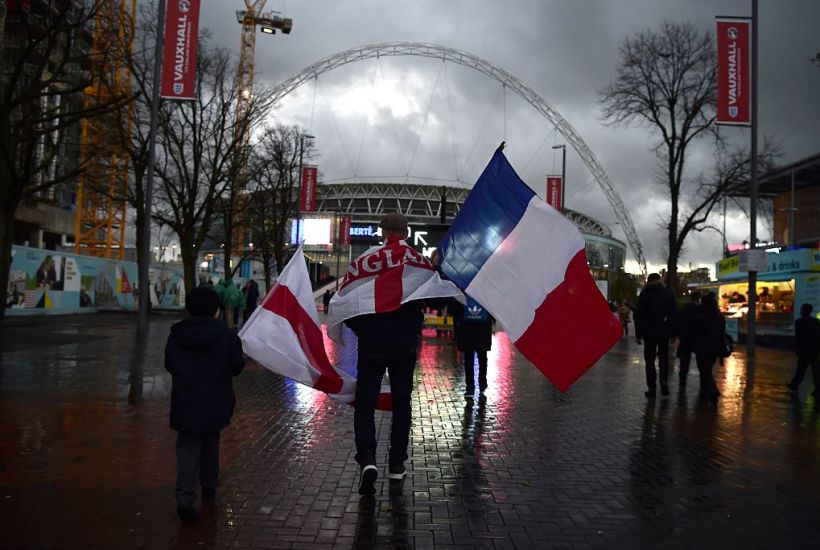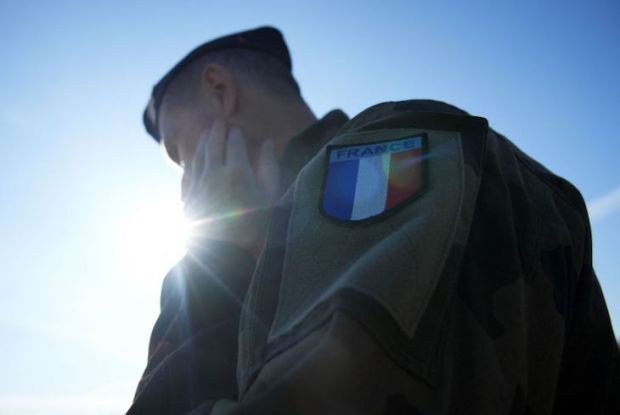When England play France tonight, more will be involved than just a game of football.
We all know why. Even those with an enviable indifference to history will have vague notions about Agincourt, Joan of Arc, Waterloo, Napoleon and General de Gaulle. When I first went to France decades ago I was surprised to be asked fairly regularly why we had fired on the French fleet at Mers-el-Kébir – an event which, despite my history degree, had largely passed me by.
From the Norman Conquest to the Tudors, England was in a formative and often abusive relationship with France. Our language was changed by the influx of French, but on the other hand the first works of French literature were written in England. After a brief period of relative calm, in 1689 England entered a Europe-wide struggle against the French super-power that lasted more than a century. Both countries were profoundly altered by the conflict, and as perceptive observers realised even in the 1700s, the outcome would shape the future of the world.
The French are oddly obsessed with us, and not least with Boris
But cross-Channel history is far from being one of unalloyed enmity. The uniqueness of our relationship is that even the resentments are mixed with admiration, envy, even affection. Few nations are so keen on mixing with each other, not because they are so similar, but because they are intriguingly different. Or think they are. Both sides cherish outdated stereotypes. We think of the French as suave sophisticates or picturesque peasants. They think of us as cunning and ruthless (if only!). We may be obsessed with our ‘Special Relationship’ with the United States, as the French are with their ‘marriage’ with Germany. But how many Brits would prefer a broken-down cabin in Montana to a crumbling mas in Aquitaine? How many French do their Christmas shopping in Hamburg or send their children to university in Weimar?
Sporting contests are another element in our relationship. Few countries have sport as such an important part of their cultures. Most take a serious interest in one sport, or perhaps two. Yet the English and French compete at a high level in a huge range of sports, from tennis to ocean racing. This is itself an interesting historical phenomenon, going back to the late-Victorian promotion of sport as not merely entertainment but as moral and political education. The French elite, led by Pierre de Coubertin, embraced the muscular ethos of the English public schools, making France a sporting colony of England. Football came a little later. During the First World War, the huge numbers of British soldiers in northern France spent much of their off-duty hours playing football, and it was this that spread the game into the big French cities. France is the only European country that early adopted both rugby and football as major sports.
For all these reasons, any France-England contest arouses sensitive emotions. Both countries tend to think they have been hard done by in history. From childhood, the English have it drummed into them that they are has-beens: once great, now insignificant. The French, in contrast, are taught that they are uniquely great, but resent that this is not universally recognised. French is the most elegant of languages, but it is English (or ‘Globish’, as they sneer) that has taken over the world.
There is a new element in this old rivalry: Brexit. Our 2016 vote undermined France’s vision of a Greater Europe, and the French media – all of which, let us note, rely on government subsidies –have ever since been full of tales of post-Brexit woe, pour décourager les autres. Imagine the Guardian writ large (and indeed, Le Monde, France’s leading daily, is its sister paper).
We, on the other hand, are not very interested in France at the moment. How many politicians, actors or writers could the average Brit name? But the French are oddly obsessed with us, and not least with Boris. We may treat ex-prime ministers as indifferently as Casanova treated ex-girlfriends. But for our Gallic friends, Boris remains the fascinating symbol of England’s Brexit revolt. French TV is now showing a big documentary about him, which apparently I am in (though I’d forgotten, which perhaps demonstrates my point). In short, for the French, post-Brexit Britain has to be a disaster: their own fragile amour-propre demands it.
What has this to do with the World Cup? Because to millions of people round the world, the outcome on Saturday will be a token of national success. Both England and France could do with a morale boost amid looming strikes and blackouts. But one will only get a further injection of what president Mitterrand called la morosité. For the other, the Cup itself will beckon, and with it the envy and admiration of a global audience.
The post England vs France is far more than a football match appeared first on The Spectator.
Got something to add? Join the discussion and comment below.
Get 10 issues for just $10
Subscribe to The Spectator Australia today for the next 10 magazine issues, plus full online access, for just $10.



















Comments
Don't miss out
Join the conversation with other Spectator Australia readers. Subscribe to leave a comment.
SUBSCRIBEAlready a subscriber? Log in